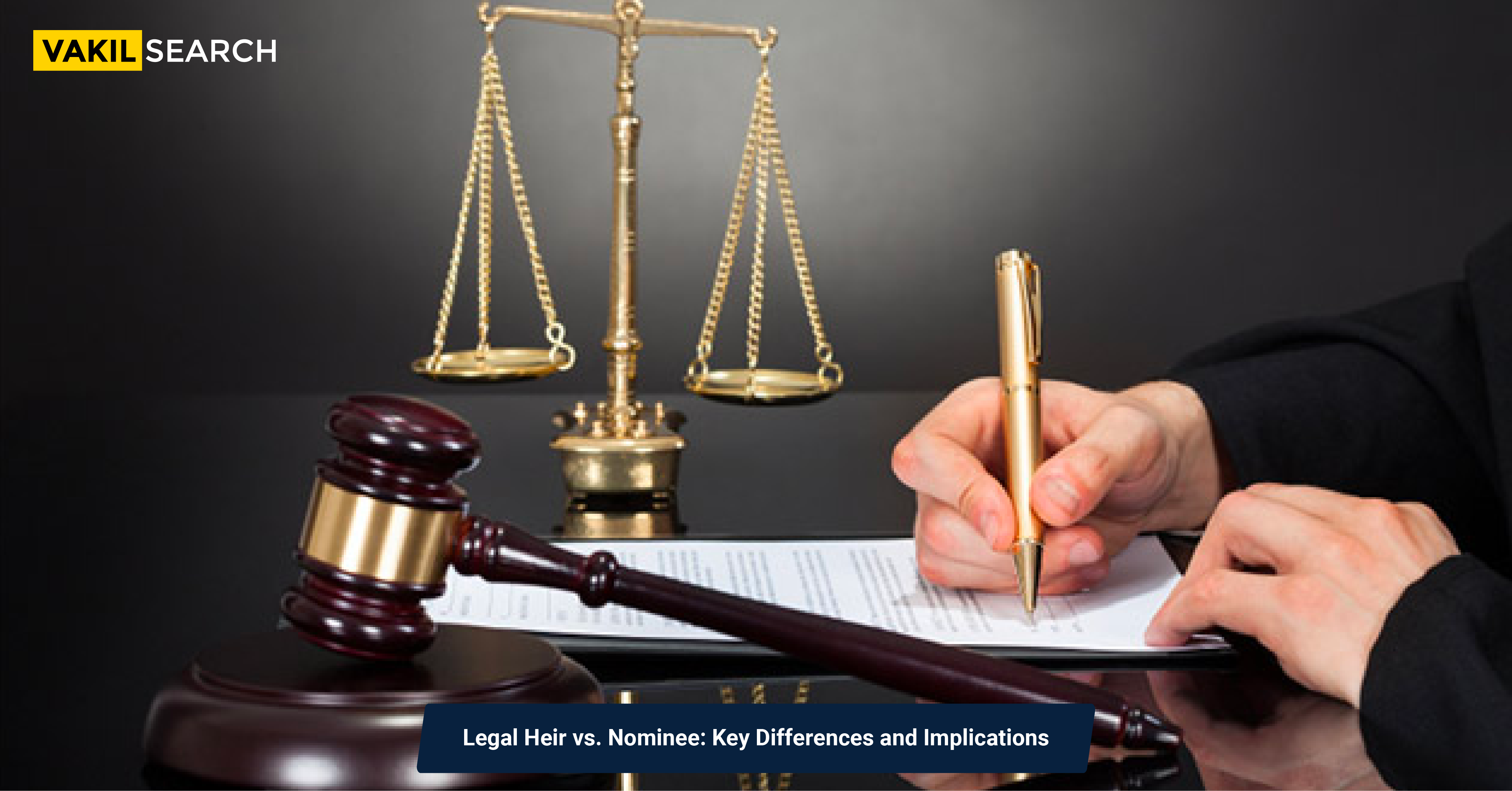Explore the distinctions between legal heirs and nominees in Indian law, understanding their roles, rights, and the significance of making informed choices in asset management and succession planning.
When it comes to financial planning and securing the future of your loved ones, it’s essential to understand the nuances of legal heirs and nominees in Indian law.
These terms often cause confusion, but they play distinct roles in asset distribution and succession planning. In this article, we will shed light on the key differences between legal heirs and nominees and their implications for your financial and estate planning.
Legal Heir vs. Nominee: Understanding the Basics
Legal Heir:
A legal heir is an individual who is entitled to inherit the assets and properties of a deceased person under the personal laws applicable to them. These personal laws differ based on an individual’s religion in India. For example, Hindu, Muslim, Christian, and Parsi personal laws govern inheritance differently.
Nominee:
On the other hand, a nominee is someone appointed by the asset holder to receive the assets in case of their demise. The nomination process is commonly used for financial instruments like bank accounts, insurance policies, and investments. It’s important to note that a nominee is merely a custodian of the assets and does not have legal ownership rights.
Key Differences: Legal Heir Vs Nominee
Ownership Rights:
Legal Heir:
Legal heirs have legal ownership rights over the deceased person’s assets. They can claim and manage these assets based on the personal laws applicable to them.
Nominee:
Nominees do not have ownership rights. They are responsible for facilitating the transfer of assets to the legal heirs or beneficiaries but do not gain ownership.
Succession and Inheritance:
Legal Heir:
Legal heirs inherit the assets as per the applicable personal laws, and the process may involve multiple heirs with specific entitlements.
Nominee:
Nominees receive the assets as custodians and are obligated to distribute them among the legal heirs or beneficiaries based on the deceased’s wishes or legal requirements.
Dispute Resolution:
Legal Heir:
Disputes among legal heirs regarding asset distribution are settled through legal processes and the applicable personal laws. Courts may intervene in case of disagreements.
Nominee:
Nominees have a limited role in settling disputes. Their primary responsibility is to follow the instructions provided in the nomination form.
Revocability:
Legal Heir: The status of a legal heir cannot be changed or revoked by the asset holder. It is determined by personal laws and the deceased’s family structure.
Nominee: The nomination of a person as a nominee can be changed or revoked by the asset holder at any time. This provides flexibility in asset management.
Implications for Your Financial Planning: Legal Heir vs. Nominee
Understanding the differences between legal heirs and nominees is crucial for effective financial planning and estate management. Consider the following scenarios:
- If you nominate someone who is not a legal heir, there could be conflicts between the nominee and legal heirs during asset distribution.
- To ensure a smooth transition of assets, especially in blended families, it’s essential to align your nominations with your will and the applicable personal laws.
- Keep your nominations updated to reflect changes in your family structure or preferences. Failing to do so might lead to unintended consequences.
The Takeaway
In conclusion, understanding the distinctions between legal heirs and nominees is crucial for effective financial planning and estate management in India. It’s advisable to seek professional legal advice and align your nominations with your overall estate planning strategy to ensure a smooth transition of assets to your loved ones.
Secure Your Legacy with Vakilsearch Estate Planning Services!
Planning for the future is not just about securing your assets, it’s about ensuring that your loved ones are taken care of. At Vakilsearch, we understand the importance of estate planning, and we’re here to assist you every step of the way. Get in touch with our experts to know more!
FAQs (Frequently Asked Questions):
Can a legal heir be a nominee?
Yes, a legal heir can also be nominated, but it's essential to understand that their role as a nominee is separate from their legal rights as an heir.
Is a nominee entitled to the entire asset?
No, a nominee is not entitled to the entire asset; their role is to facilitate the transfer of assets to the legal heirs or beneficiaries.
Can I change my nominee at any time?
Yes, you can change your nominee for assets like bank accounts, insurance policies, and investments at any time.
What happens if I don't nominate anyone?
In the absence of a nominee, the legal heirs will inherit the assets as per the applicable personal laws.
Do all assets require a nominee?
Not all assets require a nominee. The necessity of a nominee depends on the type of asset and the institution's policies.
Can a nominee dispute the distribution of assets among legal heirs?
A nominee's role is generally limited to following the instructions provided in the nomination form. Disputes among legal heirs are typically resolved through legal processes.
Read more:-










